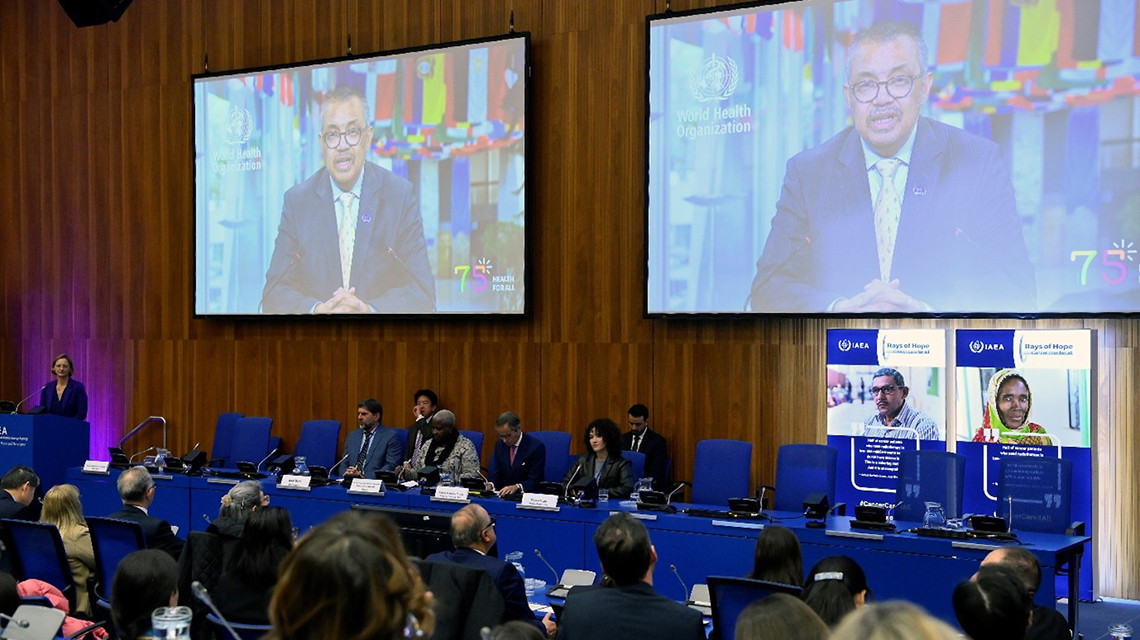Newly published data by the International Agency for Research on Cancer (IARC) (Globocan 2022) show that cancer cases and deaths worldwide are increasing, not decreasing. “This tells me we need a different approach,” said IAEA Director General Rafael Mariano Grossi in his opening statement. “Through Rays of Hope we are doing just that — bringing together the different actors to deliver impactful and lasting change.”
The opening session of the Forum was livestreamed and followed by audience members worldwide in the context of World Cancer Day 2024. The two-day discussion continued with talks from actors at all levels of the cancer care continuum: research centres, cancer care institutions, governments, policymakers and the private sector.
Rays of Hope builds on many years of cancer support to countries, including through imPACT Review missions, national cancer control programmes and support for the preparation of strategic funding documents. Ten imPACT Reviews were coordinated by the IAEA in 2023 and conducted jointly with the IAEA, the WHO and the IARC to assist countries with their national cancer control plans.
The role of innovation and Anchor Centres was also highlighted during the event, with Deniz Yalman, a professor from Ege University in Türkiye — Europe’s only Anchor Centre — taking the floor in a session on the importance of guaranteeing sustainability and quality in cancer management. “The role of Anchor Centres is pivotal to ensure long term solutions that ensure a fully trained body of medical staff is ready to deliver nuclear medicine for diagnosis and treatment safely and securely in each region and country,” she confirmed.
Audience members also heard about other concrete solutions and directions that can accelerate the speed and scale of progress — examples of innovation and research which help cancer centres do more with the tools and techniques that they have; state-of-the-art learning platforms that catalyse education and training at scale; and much needed databases that generate novel insights for targeted and focused action.







